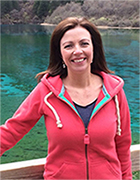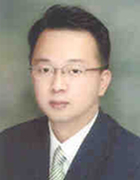
SL-1 How to Write a Great Research Paper, and get Published in a Top Journal
Deirdre Dunne
Senior Publisher,
Environmental Sciences Department, Elsevier, The Netherlands
Background: Knowing the best way of structuring your paper when writing it, and the most appropriate journal to send it to, really helps in getting your paper accepted. Also understanding how editors and publishers think and what they expect, and knowing how the peer review process works, is invaluable insight into the publishing process.
Results: After attending this workshop, one in the Elsevier Publishing Connect Workshop series, participants will have a clear idea of the steps needed to be taken before starting to write a paper. They will also be able to plan writing manuscripts using the logical step sequence – not the sequence in which the paper will be read. Authors are also made aware of what aspects of their papers Editors and Publishers look at critically, and to ensure that in taking care of these areas, their papers are much more likely to be accepted. Dealing with referees’ comments and the art of polite rebuttal are also described such that these can be used to improve the submitted paper suitably. Sensitive areas such as publishing ethics, plagiarism, duplicate publishing, etc are also clearly explained such that participants have a clear understanding of what is allowed, and what is not permitted.
Conclusions: These insights into the publishing process will enable the participants to be more confident as an author in the world of science publishing, and will help them get their papers published more easily.
Results: After attending this workshop, one in the Elsevier Publishing Connect Workshop series, participants will have a clear idea of the steps needed to be taken before starting to write a paper. They will also be able to plan writing manuscripts using the logical step sequence – not the sequence in which the paper will be read. Authors are also made aware of what aspects of their papers Editors and Publishers look at critically, and to ensure that in taking care of these areas, their papers are much more likely to be accepted. Dealing with referees’ comments and the art of polite rebuttal are also described such that these can be used to improve the submitted paper suitably. Sensitive areas such as publishing ethics, plagiarism, duplicate publishing, etc are also clearly explained such that participants have a clear understanding of what is allowed, and what is not permitted.
Conclusions: These insights into the publishing process will enable the participants to be more confident as an author in the world of science publishing, and will help them get their papers published more easily.

SL-2 Applied Biological Chemistry (ABCH) Seminar on Research Ethics
Prof. Hoi-Seon Lee
Editor-in-Chief of Applied Biological Chemistry,
Department of Bioenvironmental Chemistry, College of Agriculture & Life Sciences, Chonbuk National University
In present-day Korea, studies that explore the fundamentals of science are being actively pursued. Despite all the outstanding achievements of its researchers, however, the prevention and verification of research misconduct has become an important issue. Just as other countries have made systematic efforts to eradicate research misconduct for a long time, there is an urgent need in Korea for taking various measures and holding discussions to formulate a set of research ethics that keep pace with current demands. As a part of this effort, the Korea Ministry of Education (MOE) has authorized a revised version of “Guidelines for the Securing of Research Ethics” (an MOE directive; hereafter referred to as “Research Ethics Guideline,” or REG) on November 3, 2015, to reinforce accountability and prevent research misconduct among researchers. The main points in the revised REG include clear guidelines and determining criteria for identifying the type of research misconduct, such as “plagiarism” and “improper authorship.” In particular, “redundant publication” was added to the types of research misconduct, while detailed descriptions were provided for “plagiarism” and “improper authorship” (Article 12 of the REG). “Plagiarism” has been defined as the act of using another person’s original idea or creation that is not common knowledge without proper citation, thereby causing a third party to perceive the work to be one’s own creation. Further, “improper authorship” has been defined as omitting, without justification, to attribute authorship to someone who has contributed to the research content or results, or attributing authorship to a person who did not contribute to the research as a way of expressing gratitude or conferring an honor on him or her. In response to the present demand for the eradication of research misconduct and the establishment of research ethics, the editorial board of the journal of the Korean Society for Applied Biological Chemistry (ABCH) is striving to elevate the qualitative standards of the journal. It aims to do so by rejecting the review of any submitted manuscript with a plagiarism rate of 30% or higher (by using CrossCheck/iThenticate, a plagiarism checker program from Springer-Nature, and excluding references), as well as establishing disciplinary procedures for manuscripts with a plagiarism rate of 60% or higher.
